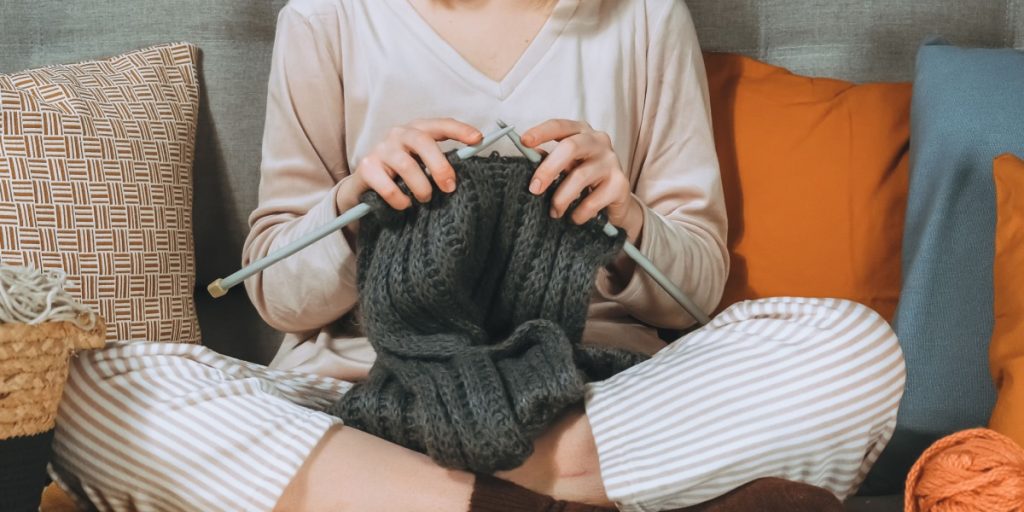New research from Sweden reveals that knitting is not just a soothing hobby but also an effective key to improving mental health.
Others are reading now
Knitting has long been synonymous with coziness and relaxation, often associated with images of grandmothers meticulously working with their knitting needles.
However, recent research from the University of Gothenburg in Sweden sheds light on another benefit of this timeless hobby: its positive effect on mental health. This adds a new dimension to the way we view knitting – not just as a creative pastime but as a potential ally in managing mental health issues.
Knitting as Therapy
Joanna Nordstrand, an occupational therapist and lead researcher of the study from the University of Gothenburg, emphasizes the therapeutic value of knitting.
Her research, which involved collecting and analyzing 600 statements from users on Ravelry — a social network for knitting and crocheting enthusiasts — shows that knitting can serve as a kind of medicine for people with mental health challenges.
Also read
“Knitting is a creative hobby that at the same time can help these individuals cope more easily with life,” explains Nordstrand, clarifying why knitting has become a popular activity among many.
Three Key Benefits
The analysis of the collected data highlights three primary ways in which knitting contributes positively to mental health:
-
Relaxation and De-escalation: Knitting helps individuals to relax and reduce stress levels.
-
Identity and Community: As a hobby, knitting gives people a sense of identity and belonging in an informal community of knitters.
-
Structure and Order: The hobby introduces structure into daily life, which can have a positive effect on mental health.
Participants in the study reported long-term health benefits from knitting, with some even noting an improvement in their ability to think clearly and manage thoughts effectively while knitting.
Scientific Support
This research is supported by earlier studies, such as one from Harvard Medical School in 2007, which demonstrated how knitting can stimulate the body’s natural relaxation mechanisms, lower heart rate, and blood pressure. Nordstrand’s research team believes the results of their study highlight significant potential in knitting as a tool for the healthcare system to better support individual mental well-being.
As occupational therapists point out, their work is about optimizing quality of life through daily activities. Knitting, with its proven health benefits, represents a valuable resource that may have been overlooked by the traditional healthcare system.
The University of Gothenburg’s study provides a scientific basis for recognizing knitting not just as a hobby but as a meaningful activity with real health benefits. It highlights knitting’s place in a modern context where mental health is increasingly prioritized and confirms the old wisdom that some of the best forms of therapy come in the most unexpected shapes.


